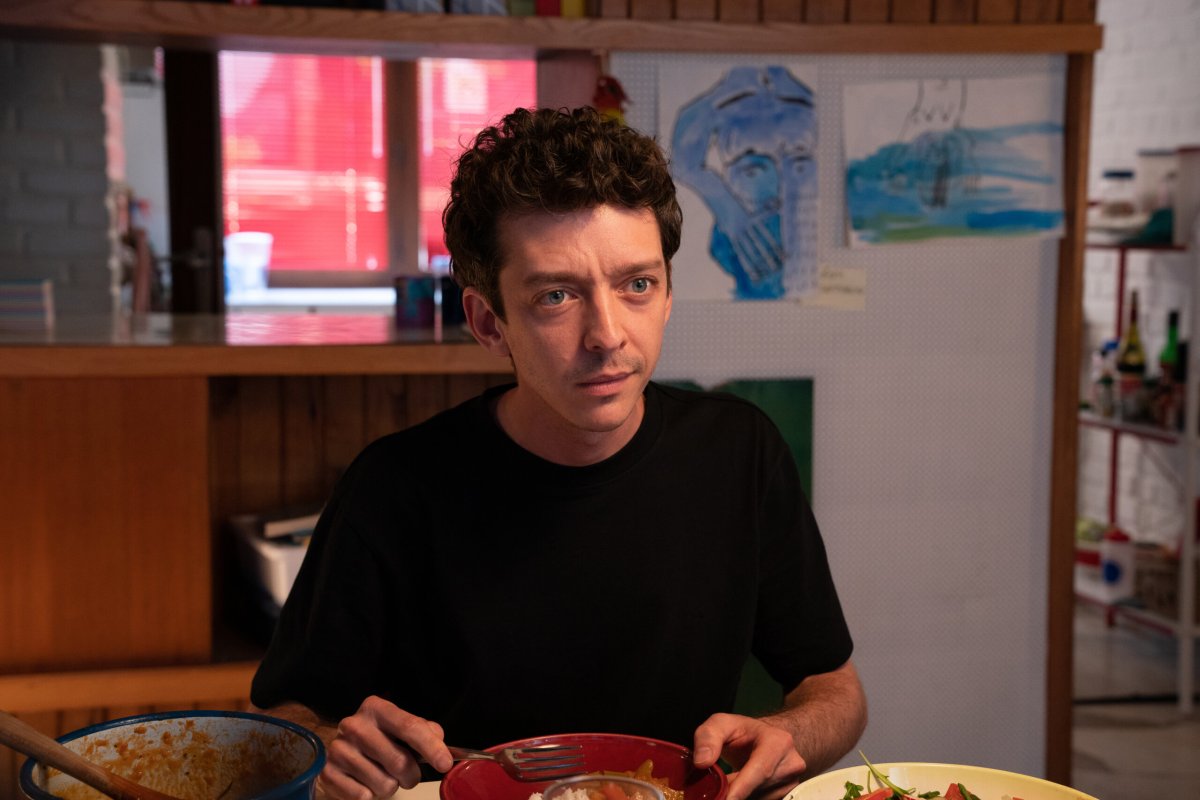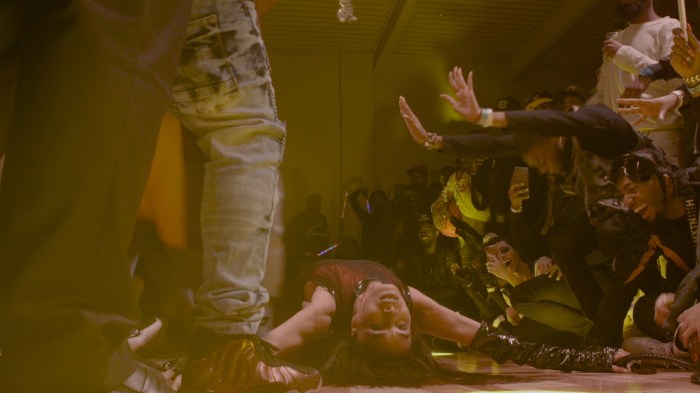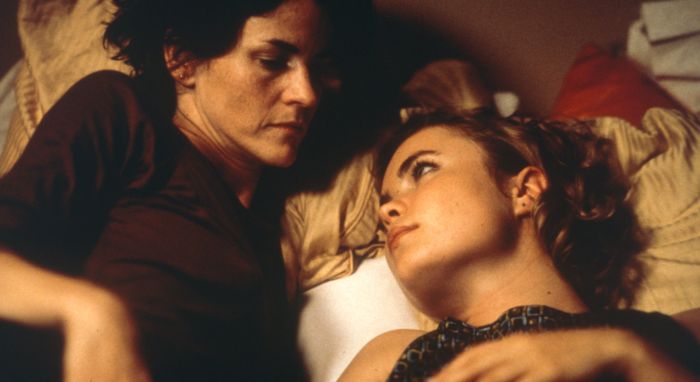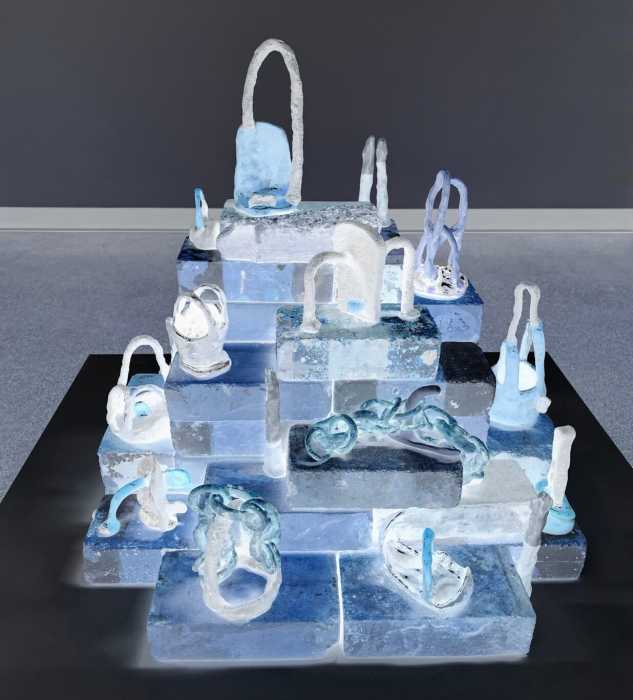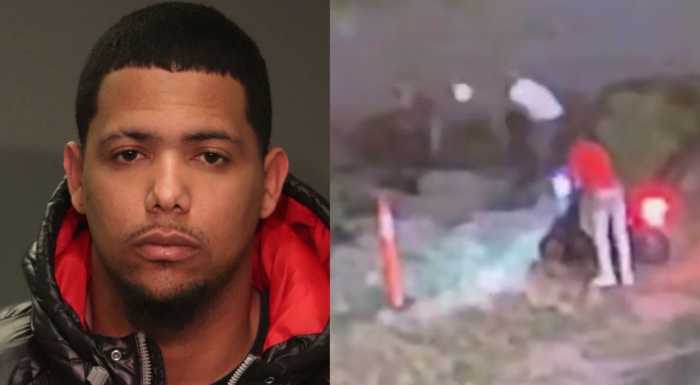Out gay actor Nahuel Pérez Biscayart shines in writer/director Erwan Le Duc’s charming comedy-drama, “No Love Lost,” screening at this year’s Rendezvous with French Cinema.
As a young man, Etienne (Biscayart) meets a young woman (Mercedes Dassy), falls in love with her, and they have a baby together. But one afternoon, she drives off, never to return, leaving Etienne to raise their child, Rosa, on his own.
Then, 17 years later, Rosa (Céleste Brunnquell) is about to go off to college, and Etienne is coming unglued as he faces stresses at work, and with selling and buying a new house. Then Etienne sees the woman who left him years ago. Should he go find her? And should Rosa join him on this quest?
“No Love Lost” is amusing as Etienne and Rosa verbally spar about everything from her losing her virginity to him being pitiful, and Biscayart is a wonderfully expressive actor, bugging his eyes teaching Rosa how to park a car, or screaming into a soccer ball during a moment of exasperation. But the film also displays a sensitivity in how Etienne copes with adapting to change and being needed. In a recent interview, Biscayart spoke with Gay City News about his new film.
Etienne is a very caring father and appreciates being needed, but he is also seen as a bit of a sad sack. What are your thoughts about his character?
I think his nature is both things, and that is also his power. That’s the power of every human — how you reconcile grief, and pain, and absence. It can be transformed into the power of life. Etienne does that. He says that instead of assuming the tragedy, he has decided to live and give my best to his daughter.
What I love about watching you is how you are a chameleon as an actor, shifting between gay and straight characters, comedy and drama, working in your native Argentina, and in France, as well as other countries. Can you talk about the roles you take?
I go back to playing characters that are survivors. I’m obsessed with survivors [laughs]. I thought this role would be different, more of a dramady. I think there are different degrees of survival. Living is also surviving. Even if you have an abundance of means, maybe you have absence of love? We deal with what we don’t have and create with what we do have. Etienne believes in life even though you can perceive he is a sad sack.
What appealed to you about playing him?
I’m not a father, but I really connect with fatherhood in the sense of caring and transmitting love and being loved in return. Which is what we find in families and friendships. I was eager to dive into this close relationship where you don’t know who has the power in the relationship. The film portrays how the roles get reversed. Rosa helps Etienne deal with his deep profound grief. I like that inversion of roles. That touches me. It gives me a broader understanding of humanity, dismantling this idea of a hierarchy and people assigned tasks. If we are powerful as humans, it is when we invert roles…
It’s a coming of age for both characters, although Etienne is not a teenager. But he stopped living a teenage life because he became a father at a young age. It is as if he skipped that chunk of his life. It is through his daughter that he gets back to his teenage years. When Rosa turns the age when he had the baby — that is so triggering. He goes back to that age. His hectic teenage energy comes from that because he is confronted with that moment in his life.
What also inspired me was this inevitable distance that we humans have. That was a strong anchor to create Etienne through how he views his daughter. How does this father look at his daughter who is becoming a woman who is mirroring the age when her mother had her? It was feeling that richness and complexity about growing up and aging.
What do you think about Etienne’s decision about pursuing the woman who got away? Do you believe in the idea of closure?
I’m nobody to judge the character. He says, “Absence is not a feeling.” But of course, you completely get depressed. Can you imagine being abandoned so unexpectedly and not knowing why? The thoughts and films you can make in your mind are endless. Fortunately, I never have had to go through that situation, but it’s like an abyss. What did I do? Was it me? Why me? On top of everything, Etienne is in charge of this baby. It’s a way of surviving — trying to give closure to something you could never give closure to.
The film reinforces the Yiddish saying, “If you want to make God laugh, have a plan.” Do you have a plan?
No. That’s the only thing I know I don’t have. I may have many things in mind, but I wouldn’t say I have a plan. If I start think deeply about where I am why I’m here what am I doing this for, I’d just go crazy. I am a little bit unconscious, like Etienne.
Wishing for things and desiring them is a powerful driving energy, but it doesn’t translate into networking and planning to achieve a certain stage in your life. I love surprises and every crazy thing I did in my life, [but] I didn’t do it because I planned it. If I plan too much, I miss the most accidental and crazy thing life planned for me. Be humble. Let things surprise you. I always find a key or something that sparks some curiosity or passion — big or small. I don’t do something because it’s an intelligent step to something else. When things appear as something you have to do, they may teach you or expose you to something new, or something you don’t know. I would like to have a little bit of a plan, but I don’t. I know I don’t want to be a star with no private life. I enjoy living my normal life with friends, being out, and doing my thing and having non-productive time.
The director of “No Love Lost,” Erwan Le Duc, will participate in a post-screening Q&A on March 9. For tickets and more information, visit https://www.filmlinc.org/films/no-love-lost/
“No Love Lost” | Screening at the Walter Reade Theater at Lincoln Center on March 4 at 1:15 pm and March 9 at 1:00 pm as part of Rendezvous with French Cinema.

